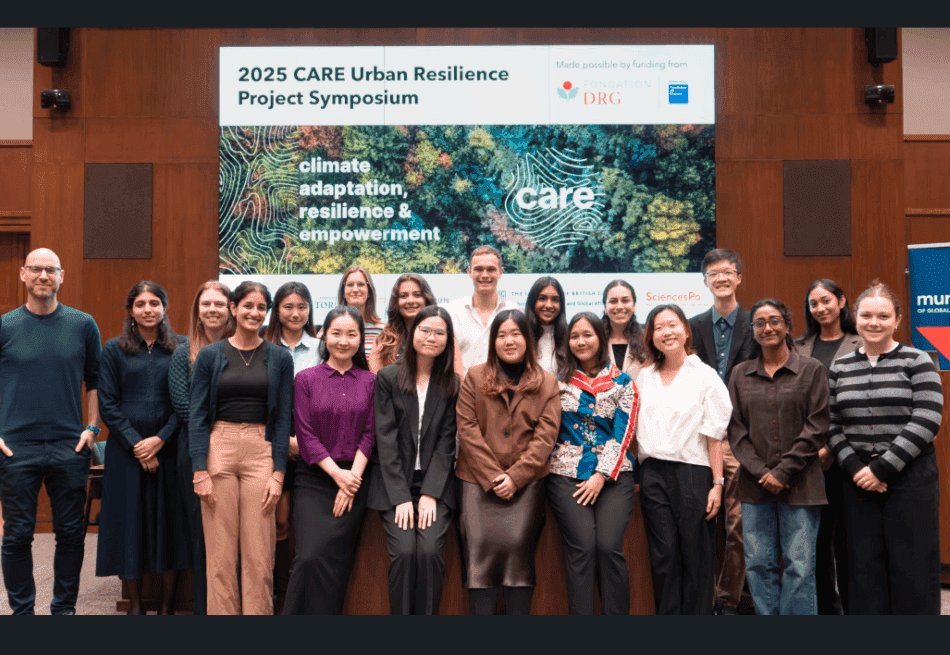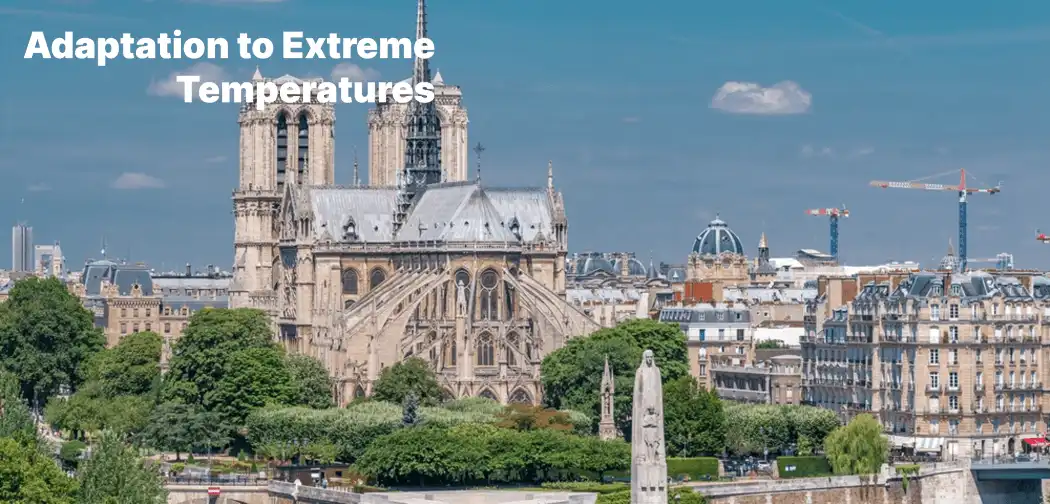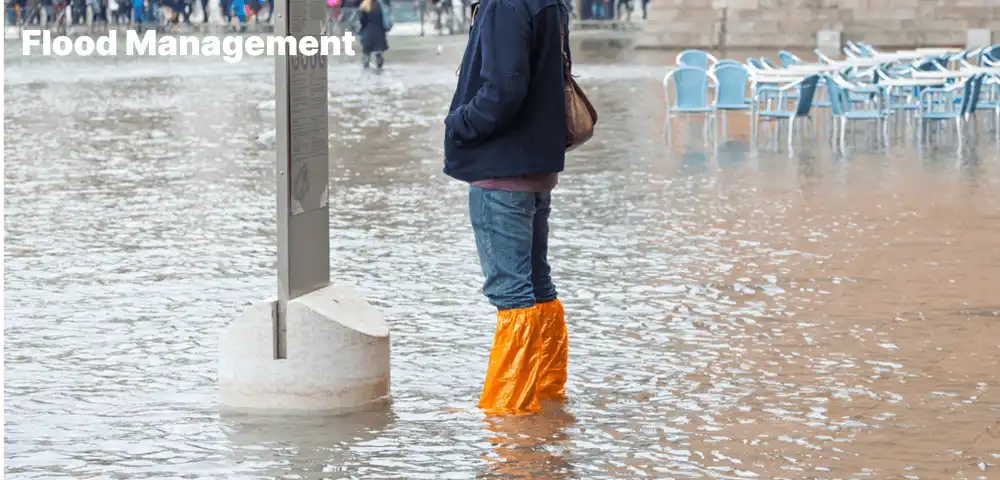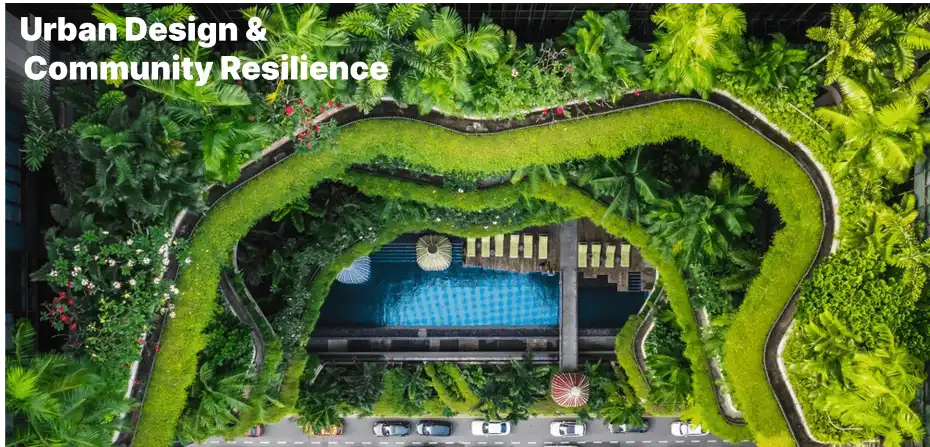Home>Building Urban Resilience: A Closer Look at Initiatives Around the World

30.10.2025
Building Urban Resilience: A Closer Look at Initiatives Around the World
Toronto - 30 October, 2025
Twenty one CARE students participated in the 2025 CARE Urban Resilience Project led by Professor Gabriel Eidelman. After a four-month research phase, students gathered in Toronto from 27-30 October for a study tour and final symposium where they presented findings on four key themes related to Urban Resilience: Adaptation to Extreme Temperatures, Flood Management, Urban Design and Community Resilience, and Resilient Energy Infrastructure.
The presentations, which included videos, podcasts, reports and policy briefs showcased a range of innovative initiatives from cities around the world aimed at addressing the consequences of climate change and their efforts to strengthen urban resilience. The diverse range of case studies offered an opportunity to compare strategies and the challenges faced by local communities. See the full symposium agenda here.
On 28 and 29 October, the students participated in two site visits. First, Tommy Thompson Park was presented as an excellent example of ecological transformation, offering a rare natural refuge along Toronto’s waterfront. This site tour highlighted the successes of adaptive management at Tommy Thompson Park, showcased a variety of restoration projects, and discussed the challenges and future initiatives designed to ensure the continued resilience of this unique urban greenspace.
Second, the group explored one of North America’s most ambitious urban transformations during a tour of Toronto’s East Bayfront, and the newly created island, Ookwemin Minising. Once an industrial port, this area had been transformed into a dynamic waterfront community. From mass timber construction and inclusive housing at Bayside, to the climate-resilient infrastructure and expansive parkland on the new island, the students gained an inside look at how Waterfront Toronto was redefining what was possible in urban redevelopment. They saw firsthand how Toronto was integrating climate resilience, architecture, and public space into a world-class waterfront.
The symposium on the 30th started with presentations on Adaptation to Extreme Temperatures. Participants presented the use of green roofs in Paris and Vancouver’s urban forest canopy policy as an effort to integrate urban forestry into climate resilience and mitigate the heat island effect. Others focused on a critical planning gap for extreme heat events at UBC in Vancouver.
The second round of presentations contrasted solutions to flooding - Venice’s MOSE flood barrier project - with Sanya, China, where three sponge ecological parks reflect an ecological restoration approach to flood management, and with Bangkok’s policy landscape in a context of replacing natural green infrastructure with man-made grey infrastructure. Hong Kong’s Coastal Enhancement and Shoreline Management initiative concluded the session on Flood Management Strategies.
In the afternoon, the third round of presentations focused on diverse approaches to urban design and community resilience, including the impact of urban agroforestry initiatives in Kampala, Uganda; Kampung Admiralty in Singapore -an intergenerational vertical housing community designed with biophilic elements; built heritage preservation as a policy tool for climate action in the City of New Westminster, BC; and +Pool, a floating pool filled with filtered water from New York’s East River.
The final presentation focused on how electric vehicle adoption has helped mitigate the urban heat island effect in Beijing and how the city leverages vehicle-to grid (V2G) technology.
After each group of presentations, students engaged in conversation about their topics with expert discussants: Kofi Hope, George Vegh, Peter Wallace and Kathleen Wynne from the Munk School. Opportunities for networking took place throughout the day between rounds of presentations and a reflection session among participating students closed the event.
See photos of the Urban Resilience Study Tour and Symposium in Toronto>
Access Student Group’s Final Presentations:

- Use of Green Roofs in Mitigating Heat Island Effect in Paris presented by Elyne Fabing & Mailie Besson (Sciences Po)
- Equity and Climate Resilience through the Urban Tree Canopy: Lessons from Vancouver’s Policy presented by Nadifa Ramadhanty & Sheila Suredja (University of British Columbia)
- Planning Without a Gap. presented by Shirley Yao (UBC)

- MOSE - A Tale of Two Projects presented by Hugo Kapteijn & Leila O’Rourke (Sciences Po)
- Building Resilient Coastal Cities: A Case Study of “Sponge-Style" Ecological Urban Parks in Sanya, China project presented by Linna Chang, University of Guelph
- When Nature Returns to the City- Rethinking Bangkok presented by Medha Bhushan (University of Toronto) & Evelyn Mang (Sciences Po)
- Hong Kong Coastal Enhancement and Shoreline Management presented by Jacqueline Lo & Thomas Yue (University of Toronto)

- Urban Agroforestry Initiatives in Kampala, Uganda presented by Saba Khan & Jananey Rajagopalan, University of Guelph
- Kampung Admiralty, Singapore presented by Sydney Wisener & Sabreena Shukul, University of Toronto.
- Preservation with a Purpose presented by Michelle Khalid & Avery Chan (University of British Columbia)
- Adding to Urban Resilience: The Case of +POOL presented by Charlotte Reed (University of Toronto)

- Powering Urban Resilience: A Case Study on Beijing’s Vehicle-to-Grid Transition presented by Jennifer Li (University of Toronto)
Read more stories on this initiative on our LinkedIn Climate Adaptation, Resilience & Empowerment
Got a question?
Please contact Céline Cantat